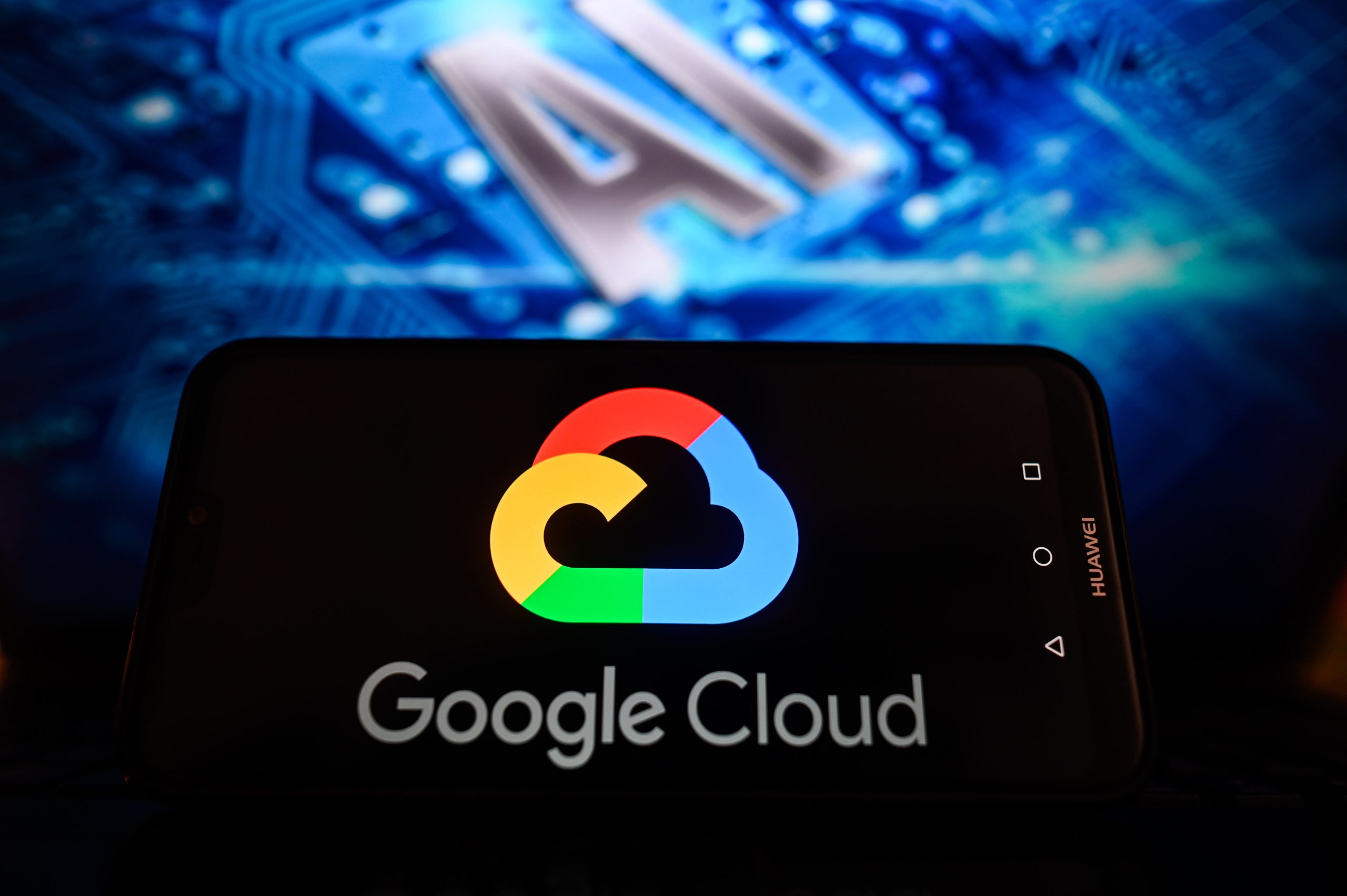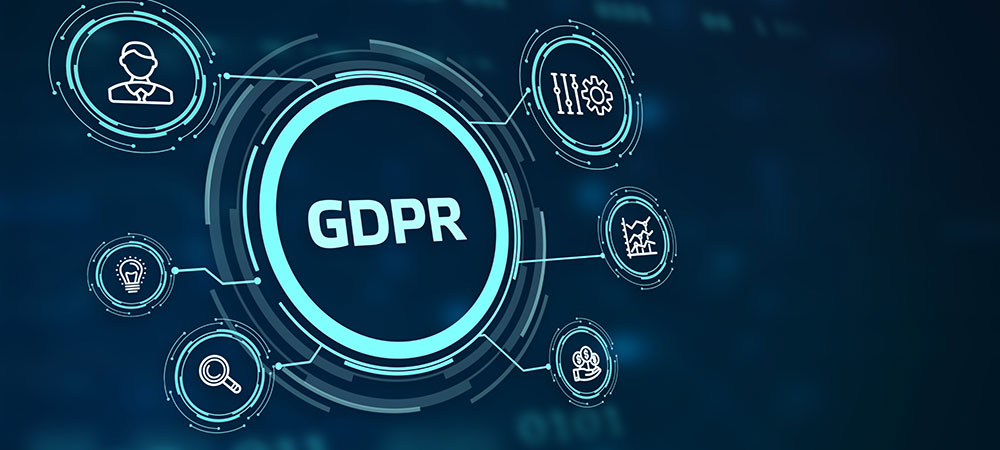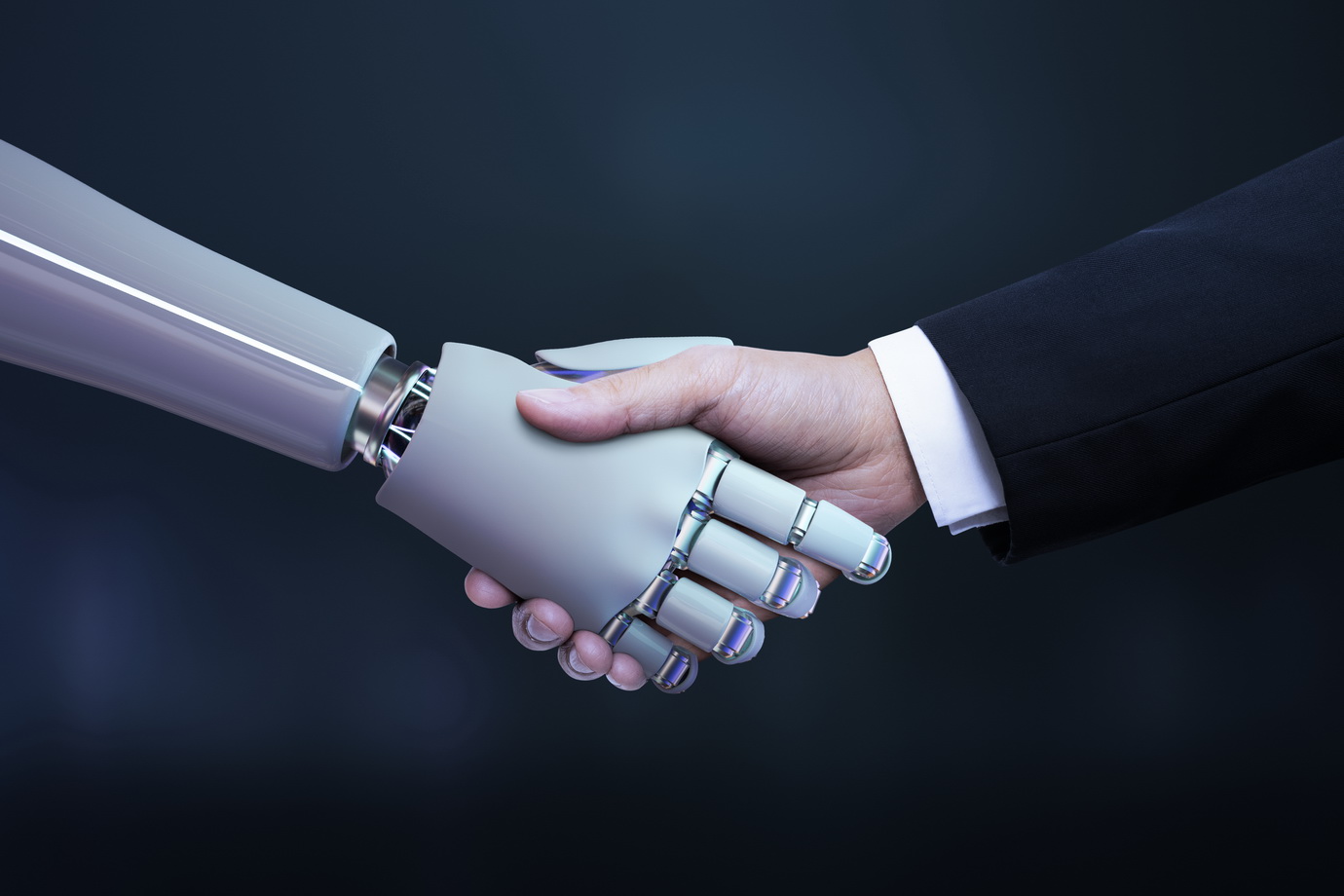
In the rapidly evolving landscape of technology integration in workplaces, the role of artificial intelligence (AI) is a topic of much discussion and debate. While many companies emphasize the collaborative nature of AI-human interaction, a recent survey sheds light on a concerning trend: nearly half of all managers express intentions to replace human workers with AI, potentially leading to wage reductions and job insecurity.
Conducted by Beautiful.ai, a leading provider of AI-powered presentation software, the survey captured insights from over 3,000 managers regarding the implementation and perceived impact of AI tools in their workplaces. The findings reveal a significant inclination among managers to leverage AI for cost-cutting measures, with 41% expressing intentions to replace human workers with AI by 2024.
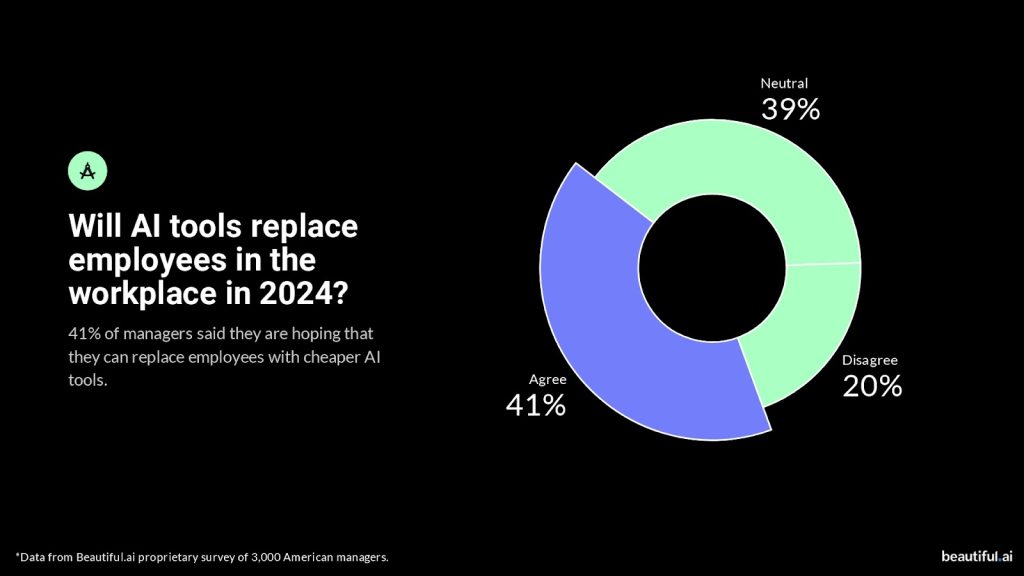
This statistic aligns with previous reports predicting widespread job displacement due to the adoption of AI technologies. Alarmingly, 48% of surveyed managers believe that their businesses would financially benefit from replacing a large number of employees with AI tools, while 45% view AI as an opportunity to lower employee salaries by reducing the need for human-powered work.
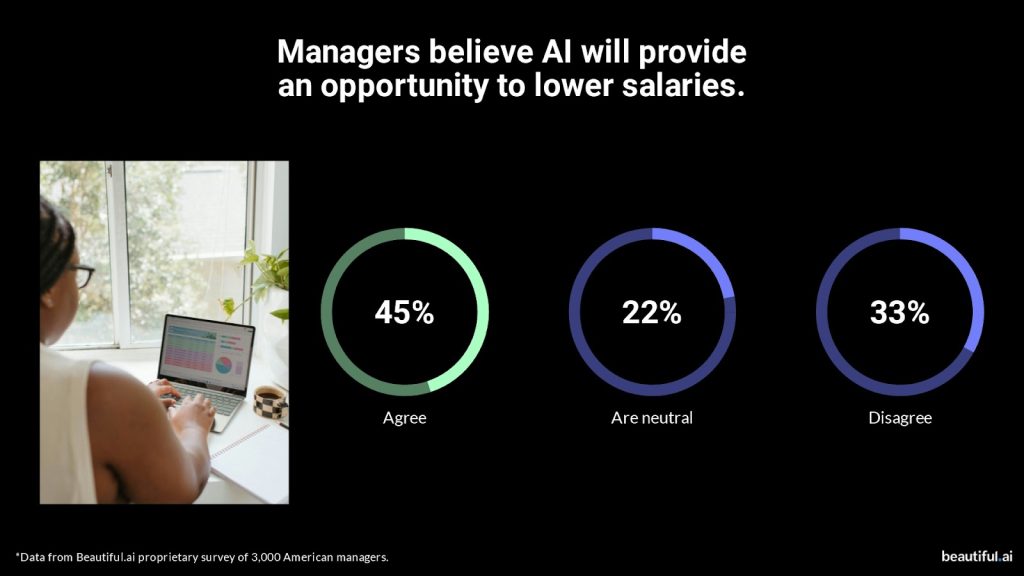
Unsurprisingly, concerns about job security and devaluation of human skills loom large among employees, with 62% fearing that AI tools will eventually cost them their jobs, and 66% worrying about becoming less valuable at work due to AI integration. Despite concerns, 64% of managers find AI’s output comparable to or better than that of human managers, emphasizing its positive impact on productivity.
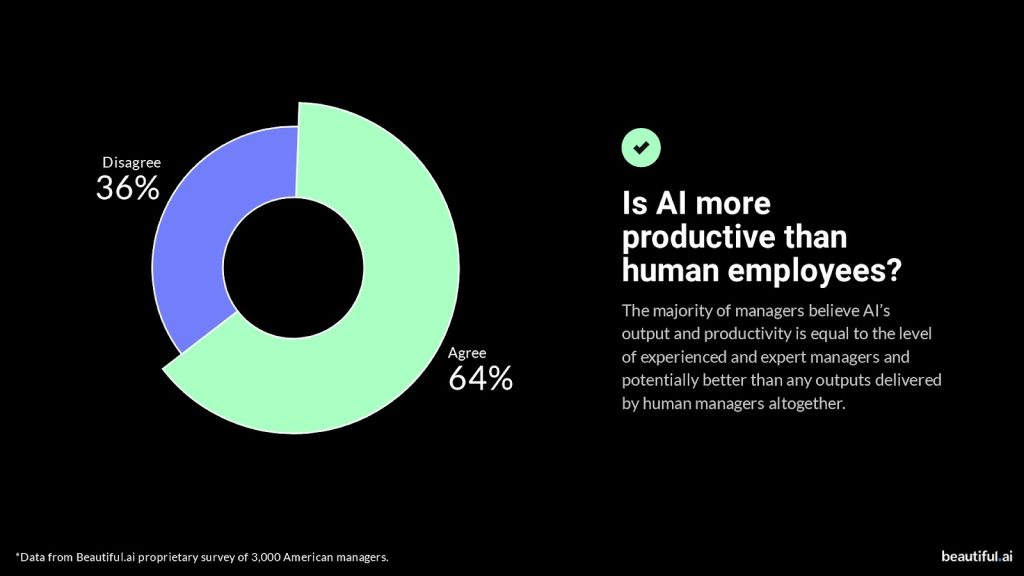
However, it’s not just frontline workers who perceive AI as a threat. Half of the surveyed managers express apprehensions about the potential for lower pay among management positions, highlighting broader anxieties about AI’s impact on workforce dynamics and compensation structures.
Despite these apprehensions, there is a silver lining: the survey also indicates a shift in managerial attitudes since 2023, with a significant reduction in the number of managers actively seeking to replace employees with AI. Additionally, 60% of respondents who have incorporated AI in their workplaces foresee its positive and productive integration, emphasizing the potential for AI to enhance efficiency rather than replace human workers outright.
As we navigate the evolving relationship between AI and the workforce, it’s essential to prioritize collaborative approaches that leverage AI’s capabilities while safeguarding job security and equitable compensation for employees. Organizations must remain vigilant in addressing concerns and fostering a culture of inclusivity and innovation to ensure a harmonious integration of AI into the workplace of the future.
For more insights and updates, visit our KI Design blog here.
Stay connected with us on Twitter for the latest news and discussion


